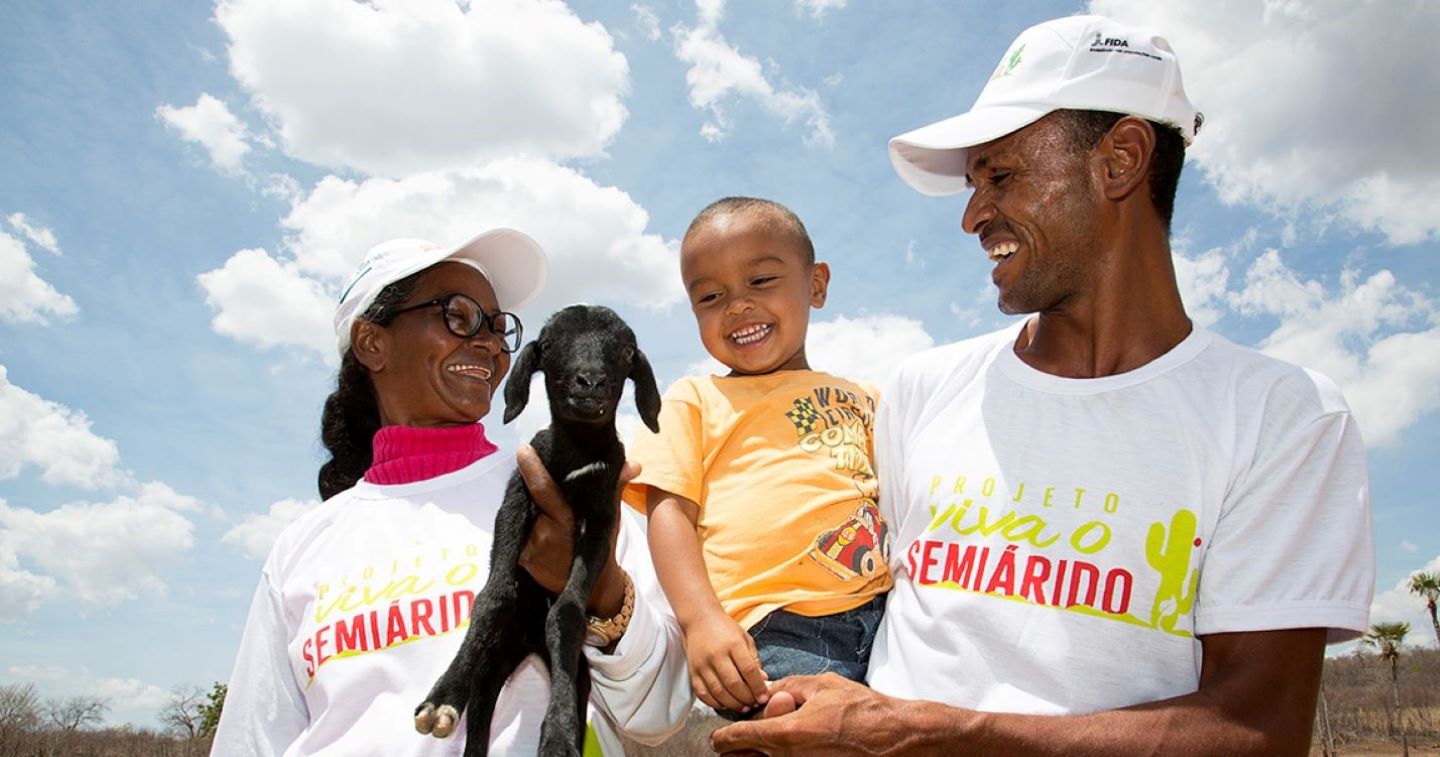Joint IFAD and IDB project in Brazil will improve the lives of 210,000 rural people in the semiarid Piauí State
IFAD Asset Request Portlet
Asset Publisher
Joint IFAD and IDB project in Brazil will improve the lives of 210,000 rural people in the semiarid Piauí State
18 January 2024
Brasília, 18 January 2024 - The UN’s International Fund for Agricultural Development (IFAD) and the Interamerican Development Bank (IDB) have joined forces to increase small-scale farmers’ income, and improve food and nutrition security, in the Piauí-Canindé basins, reaching 210,000 poor rural people in Piauí, one of the poorest regions in Brazil.
The new jointly funded Sustainable and Inclusive Piauí project (PSI), which was launched recently together with the government of Piauí, will also improve access to basic services including water and sanitation and will support rural communities to adapt to climate change.
IFAD is providing a US$18 million loan; IDB, a US$100 million loan; and the state of Piaui is contributing US$ 29.5 million to the overall project cost (US$ 147.5 million).
Rossana Polastri, IFAD’s Regional Director for Latin America and the Caribbean, stressed that this is the first jointly funded project between IFAD and IDB in Brazil. “The partnership with the IDB allows IFAD to step up investments in environmental recovery, healthy nutrition, and digital solutions, while scaling up our operations in water and sanitation, in line with our goal to boost the sustainable development of rural families in one of the most vulnerable regions of Brazil,” she added.
Morgan Doyle, IDB Representative in Brazil, expressed his “satisfaction with the start of the project and stressed the importance of its focus on vulnerable populations, in particular women, youth, and quilombola communities. The IDB is strongly committed to improving these communities' agricultural production, their access to food and their ability to adapt to climate change”.
“The new project will amplify a previous successful intervention that has positively impacted the wellbeing of thousands of families in the semiarid region of the state,” said Rafael Fonteles, Governor of Piauí. .
Piauí is part of the Sertão, Brazil’s semiarid north-eastern region, which is home to most small-scale farmers in the country. Historically, the area has been the single largest pocket of rural poverty in Latin America. Currently, 3 million people live in extreme poverty in the Sertão, out of which almost half live in rural areas.
“The investment will improve the situation of the most vulnerable families in remote rural areas recording the lowest human development index, with a special focus on women and traditional communities,” added Fonteles.
The joint investment aims to promote sustainable rural development by addressing structural issues such as water scarcity, environmental degradation, lack of sanitation in rural communities, low agricultural productivity and small-scale farmers’ vulnerability to climate change.
Operations will build on IFAD’s experience and long-standing investment partnership with north-eastern State governments in Brazil, and the small-scale producers and and rural communities there.
IFAD hopes to expand this partnership with IDB in Brazil and across the region to increase outreach and impact on poverty reduction, production and marketing.
Note to editor:
The IFAD-IDB investment will provide opportunities for rural women and youth. New income opportunities will be created through productive investments in beekeeping and cashew cultivation, among others. Access and control over natural resources will be strengthened with technical assistance. Activities will also feature leadership training and promote women's decision-making roles at farmers’ organizations.
Gender equality will also be promoted through the introduction of technologies such as renewable energy and water harvesting, meant to lead to improve household sanitation, hygiene and nutritional diversity. Women's workload will be reduced, notably with eco-efficient stoves and access to water.
The new PSI project works will improve drinking water supply thanks to household cisterns that can collect and store rainwater for human consumption, as well as through simplified water supply systems providing individual household connection to community sources (surface or underground water) jointly managed.
Household simplified basic sanitation systems will be built or restored, including individual systems for treating household sewage, household greywater reuse systems for backyard gardens, and green pits; and the establishment of fords, an environmentally friendly and non-disruptive way to gain access across a waterway, in intermittent watercourses to reduce interruptions to transportation during rainy seasons.
Press release No.: IFAD/06/2024
IFAD is an international financial institution and a United Nations specialized agency. Based in Rome – the United Nations food and agriculture hub – IFAD invests in rural people, empowering them to reduce poverty, increase food security, improve nutrition and strengthen resilience. Since 1978, we have provided more than US$24 billion in grants and low-interest loans to fund projects in developing countries.
A wide range of photographs and broadcast-quality video content of IFAD’s work in rural communities are available for download from our Image Bank.